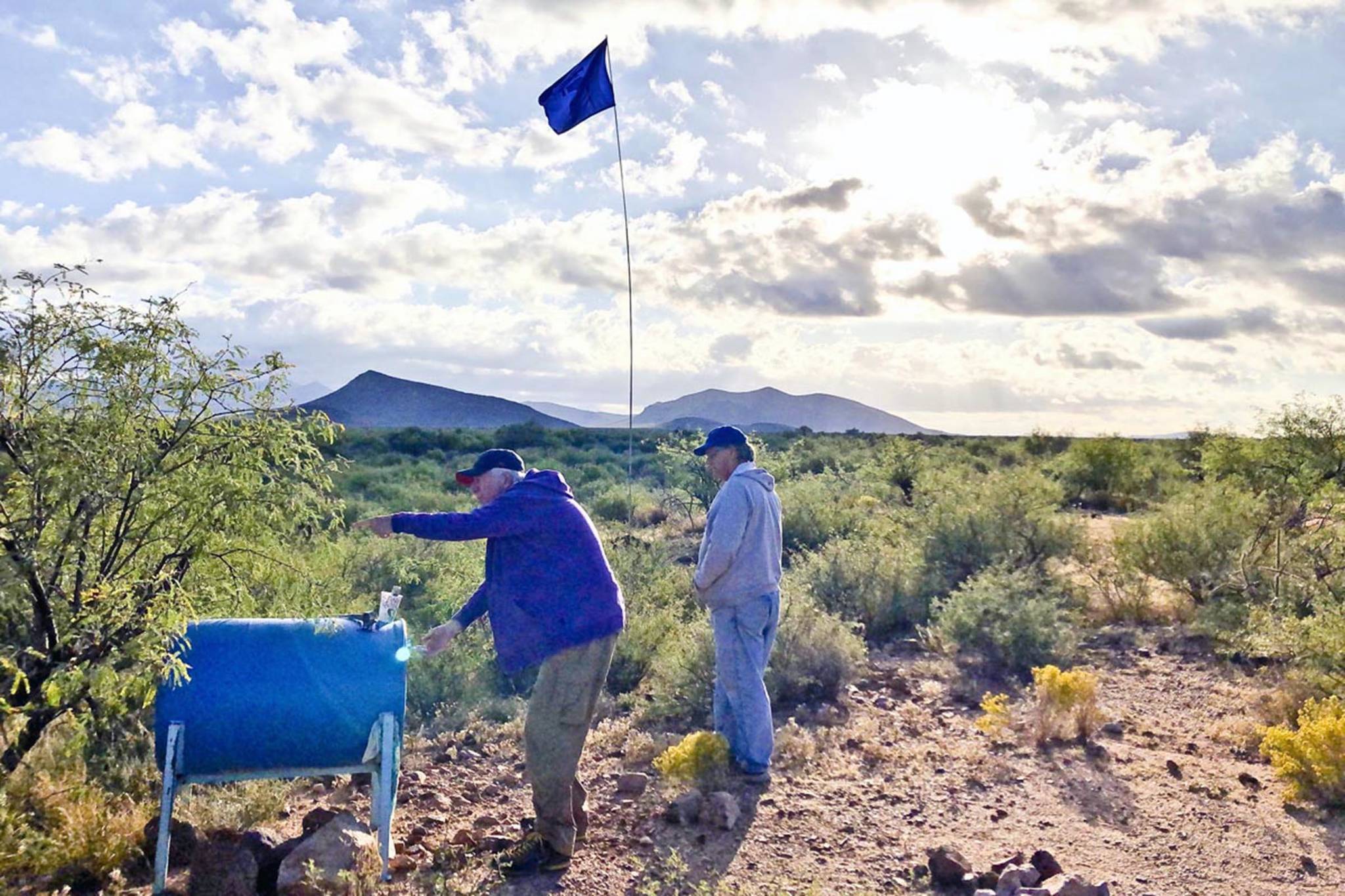Juneau’s a long way from the country’s southern border, but at least one Juneau resident made it, carried by curiosity and sympathy for those migrating north.
Ken Huse, a former construction worker and retired Juneau resident, traveled to Arizona in September to work with charitable organizations like Humane Borders and the Tucson Samaritans, which provide water, shelter and medical aid to immigrants traversing the hostile desert of the region.
“I just rode along with people, helped out when they were filling water barrels and stuff,” Huse said. “I also went and looked at a shelter. I was with a guy who volunteers there, and he gave me some background information.”
Huse said that reading about another refugee crisis led him to learning about the humanitarian crisis at the border.
“When the Syrian Civil War started, I became very interested in learning about the ordeal that migrants have to endure,” Huse said, referring to the massive flood of Syrian refugees fleeing dictator Bashar Al-Assad to Turkey and the countries of Europe, precipitating a massive humanitarian crisis as countries struggled to house them or turned them away.
“I learned about our border, and it kind of went from there,” Huse said. “If we feel like we can call ourselves a Christian nation, then we have to help these people out.”
Huse, who returned to Juneau after two weeks down south, said that he was surprised by the low number of immigrants using the shelters when he was there in mid-autumn. Shelters that hold 200 people during peak times now housed barely 20.
“Everything I saw and heard from the people down there indicated a dramatic drop off in migrant crossings in the southern Arizona realm,” Huse said. “The administration’s cruelty is working as a deterrent.”
Immigration rises and falls with the season with the largest number coming in spring and early summer, and the lowest coming in the fall and winter, according to the Pew Research Center.
According to the Pew Center, the majority of refugees are coming from Central American countries of El Salvador, Guatemala and Honduras, rather than Mexico, traditionally the largest source of immigrants. Those three countries have been wracked by violence, economic failure and climate change-driven droughts and natural disasters.
“I’d really like to go back. It’s a great community of people,” Huse said. “It’s really nice to be around people who have empathy.”
Huse said he’s looking for his own ways to help with the plight of those crossing the border, as well as seeing the lessons learned in our own community.
“One of the things I’ve learned is that we have our own migrants. People moving from rural areas to the cities. People are looking to improve their lives,” Huse said. “We don’t openly forbid them from coming and we don’t openly hate them or disparage them, and we’re all in this together.”
• Contact reporter Michael S. Lockett at 757-621-1197 or mlockett@juneauempire.com.

